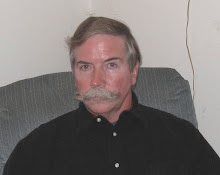Lawmakers in West Dakota are floating a trial balloon to license travel by foot. Senator Joseph Ambulabis (D 84) came up with the idea after a constituent complained to him about having to obtain a driver's license to operate a vehicle on the public roads. Ambulabis said he was unaware that anyone could drive a car without a license in most states until the 1940's.
The idea came to him almost as an inspiration he told Mendax News Service. If the states could turn what had theretofore been a right into a privilege, why not license walking also? One would not need a license to walk on his own property or any privately owned property (such as shopping centers) as long as they had the owner's consent. Ambulabis has received an avalanche of outraged calls about his proposal, but he has also garnered substantial support.
Briefly his proposal is this:
1. All people, regardless of age would have to obtain a license to walk or operate a wheel chair on any publicly owned property.
2. A minimal fee would be charged for the license ($10.00 proposed) which would be good for five years.
3. All money from the licenses would go toward installing sidewalks where there are none and maintaining those that currently exist.
4. Any surplus funds from the licenses would be allocated to hiring more police and street sweepers.
5. In order to obtain the license, applicants would provide their name, social security number,
date of birth, height, weight etc. and fingerprint or retina scan (to prevent fraud) and submit to
a drug test.
6. Anyone caught walking without a license would be subject to fine and/or imprisonment and have their walking privileges revoked for 6 months on first offense, five years on the second offense.
7. The license would be a waiver of rights as regards search, sobriety and drug testing.
Police officials hailed the idea as a way to catch criminals and terrorists. Police could set up license check points and catch public drunks and drug-crazed criminals much the same as they do at driver's license check points.
"We've needed a law like this for a long time," said Keith David of the Elkhead Coalition. Mr. David has lobbied hard to get speed breakers and stop signs installed throughout the Elkhead area and says he's delighted that someone has finally realized that neighborhoods need a revenue source to maintain their sidewalks and streets. "Non-drivers have been given a free ride as far as infrastructure maintenance, this makes them pay their fair share, it only makes sense," said David.
Civil libertarians have protested the proposal as a police state idea, and sarcastically called it a "your papers please" proposal. Ambulabis is not deterred however, and believes that if his bill doesn't pass this session, it will in the next one or the one after that. He says many of his constituents are tired of not having sidewalks and having to roll their children's strollers in the street, creating a hazard for them and motorists. He also argues that it would give police a way of identifying people who walk their dogs and let them tear up other people's property. As the situation now stands, there is no way to identify the offenders since they can refuse to give their names and claim that they have no driver's license or none with them.
Ambulabis is encouraged that the governor and many mayors back his proposal. He sees it as a way to protect a free society while maintaining order. Ambulabis says his proposal is an idea whose time has come.
Representative Arnold Benedict (R 42) of the Conservative Republicans Against Paternalism has proposed a compromise. His bill would require a license only for those walking more than one mile from home. "Most of my constituents don't travel by foot for more than a mile anyway so they won't be affected," Benedict told critics of his bill. Benedict told cheering supporters at the capitol that the Republican party would continue to be "the most vigilant of watchdogs against government encroachment of liberty."
Meanwhile, George Mason of the Libertarian party, a perennial candidate for office has denounced Benedict's proposal as an abandonment of principle. "Once you admit the principle that pedestrians can be licensed by the state you have given up your right to walk" thundered Mason to a handful of supporters at a downtown motel. Benedict, when questioned about Mason's opposition told Mendax News that he "didn't want to get bogged down in an argument over principle. We have been elected to make government work for the people; that's what I'm trying to do; we've got to work out some kind of reasonable compromise" said Benedict.
Critics say that once a right has been turned into a privilege the state can raise the price of exercising the privilege so high as to be unaffordable. Ambulabis counters by pointing out that no one would be forced to obtain a license as long as they stayed off of public property and asks how his proposal differs from licensing drivers.

Don't give them any ideas.
ReplyDelete